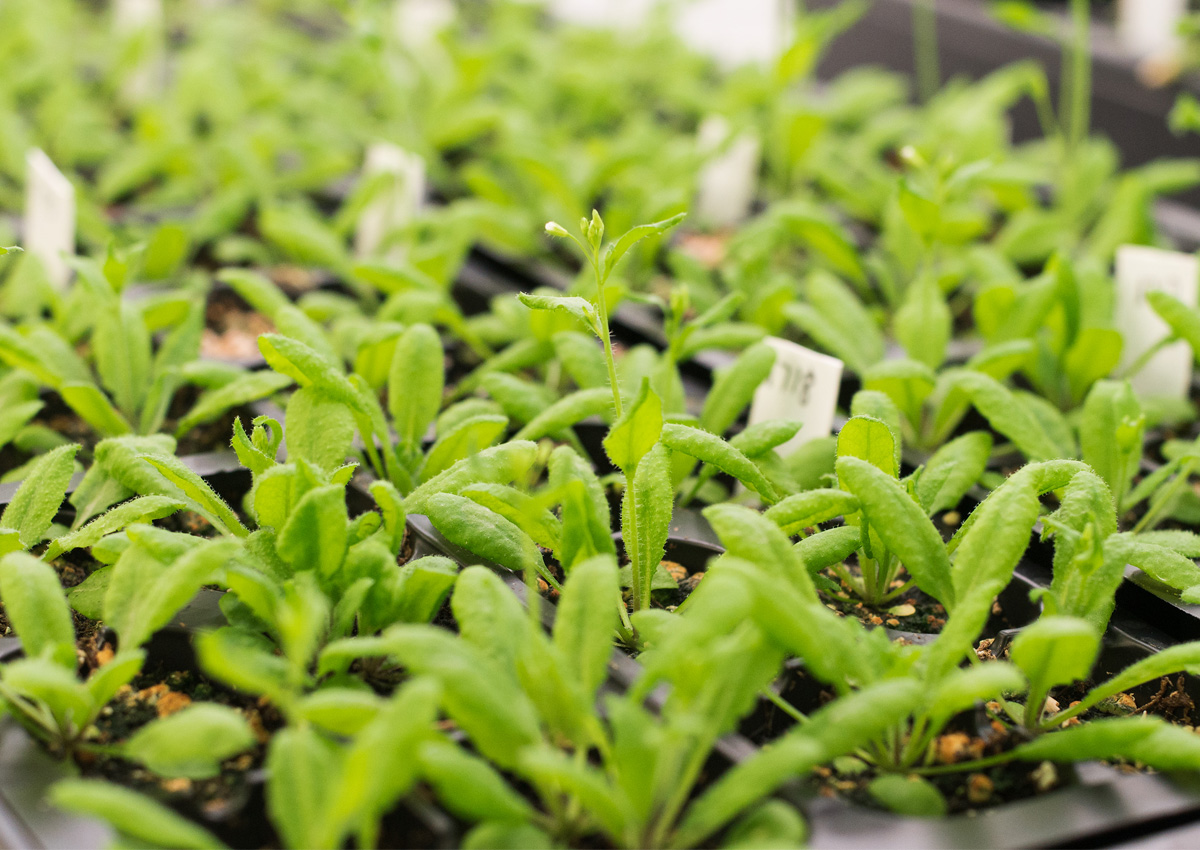
Researchers Develop Mathematical Model that Predicts Plant Response to Climate Change
August 31, 2022| |
Research led by the Spanish National Research Council (Consejo Superior de Investigaciones Científicas, CSIC) has developed a mathematical model based on temperature-regulated processes that can predict plant response to global warming. The research, published in the journal Science Advances, identified the role of COP1 protein as a growth promoter of Arabidopsis plants in long days and high environmental temperatures and its interaction with other cellular factors.
The research is a collaboration between research groups at CSIC, the Centre for Research in Agricultural Genomics (CRAG), the National Center for Biotechnology (CNB-CSIC), and the Interdisciplinary Group of Complex Systems (GISC) of the Carlos III University of Madrid. The results of the study have been used to develop a mathematical model that associates the active levels of cellular factors regulated by light and temperature with the growth of the embryonic stem or the hypocotyl. Salomé Prat, a researcher at CRAG points out that the importance of this work goes beyond the characterization of the molecular bases of thermomorphogenesis.
Plants adapt to the environmental conditions around them, including the duration of the day and ambient temperature. These two factors directly affect crop yields, hence the interest of the scientific community in their study. The first response of plants to temperature increase is the elongation of the hypocotyl, to facilitate cooling of the leaves and minimize the damage caused by heat. The research team grew several mutant lines of Arabidopsis under various light and temperature conditions. They were able to adjust the parameters of the equations with the experimental data of hypocotyl length, and one of the most interesting predictions of the model was that the maximum activity of COP1 occurs during the day and at high temperatures, explains Ares.
For more details, read the article in CRAG News.
| |
You might also like:
- WEF Puts a Spotlight on Genetic Engineering to Combat Climate Change
- How CRISPR Helps Mitigate the Effects of Climate Change
- 5 Ways Biotech Crops Slow Down Climate Change
Biotech Updates is a weekly newsletter of ISAAA, a not-for-profit organization. It is distributed for free to over 22,000 subscribers worldwide to inform them about the key developments in biosciences, especially in biotechnology. Your support will help us in our mission to feed the world with knowledge. You can help by donating as little as $10.
-
See more articles:
-
News from Around the World
- Flavonoids from Sorghum Plants Kill Fall Armyworm on Corn
- Plants that Fix Nitrogen from Air Thrive in Arid Environments
- MSU to Send Amino Acid-Enriched Plant Seeds to Space
- Decoded Oyster DNA Opens Up New Breeding Opportunities
- Researchers Develop Mathematical Model that Predicts Plant Response to Climate Change
-
Research Highlights
- Transgenic Common Bean Offers More Sustainable Strategy Against Whitefly
-
Plant
- Workshop Tackles Policy Considerations for Gene Editing in Asia and Australia
- Filipino Researchers Develop Improved Eggplant Varieties Using Innovative Technologies
-
Read the latest: - Biotech Updates (January 28, 2026)
- Gene Editing Supplement (January 28, 2026)
- Gene Drive Supplement (February 22, 2023)
-
Subscribe to BU: - Share
- Tweet

